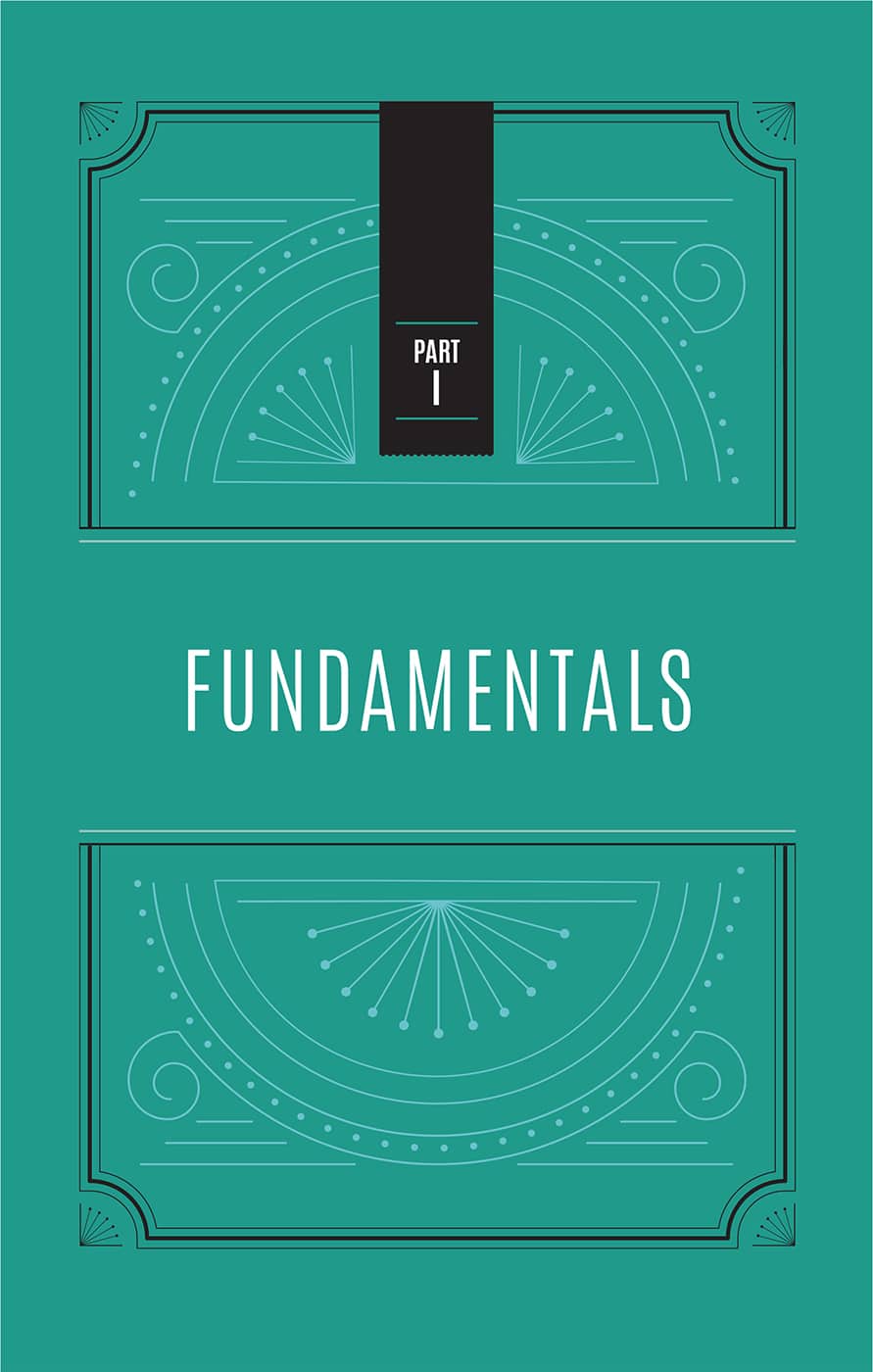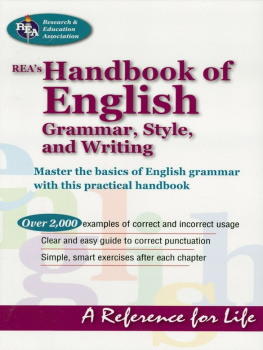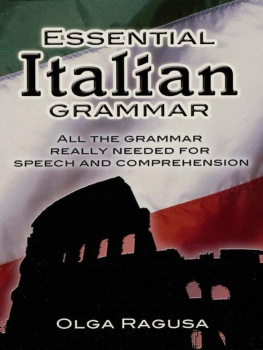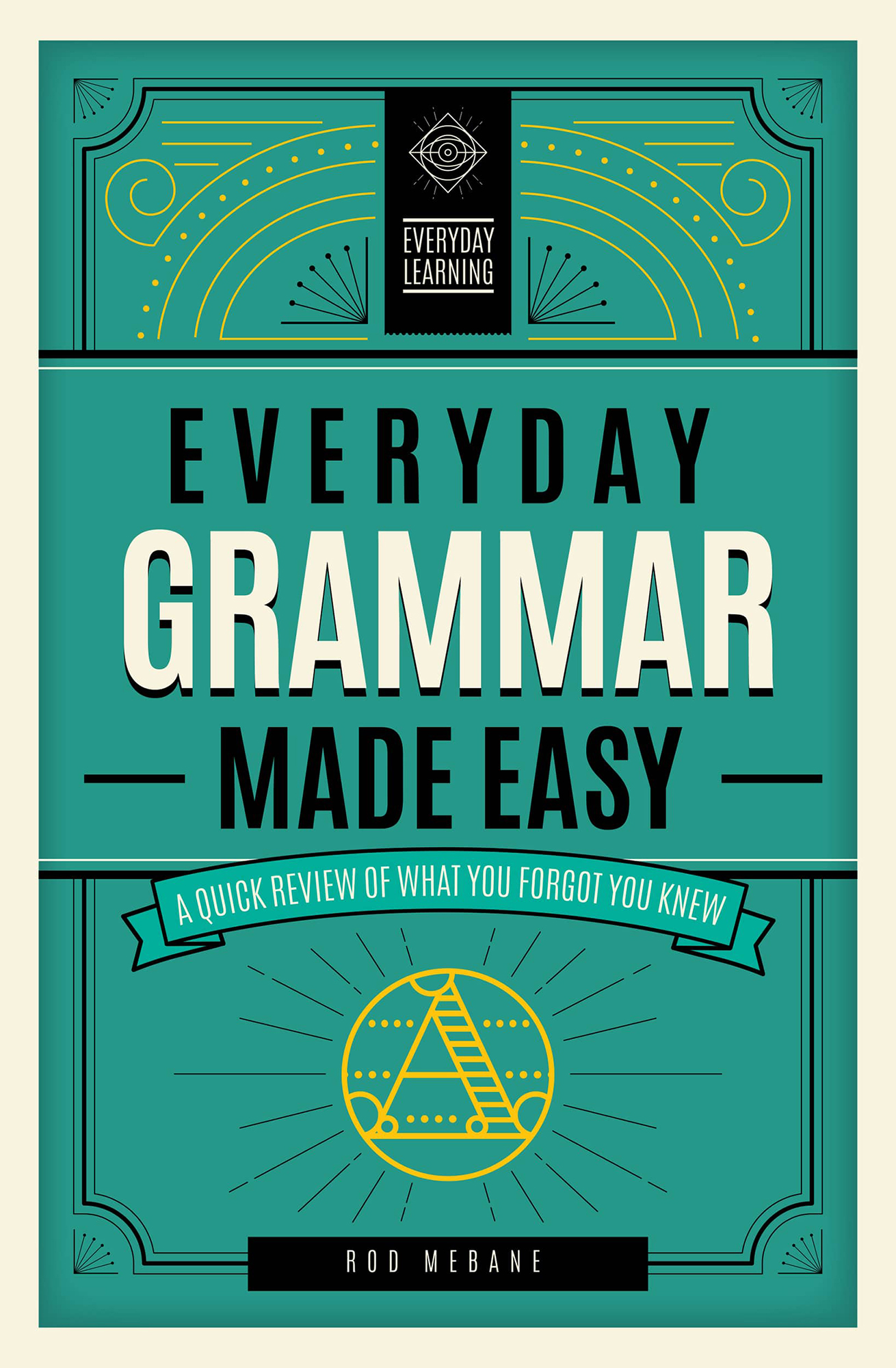Contents
Page List
Guide
Cover
INTRODUCTION
I once asked a handyman friend of mine what his favorite tool was, and he answered without hesitation, the oscillating saw. I was a little surprised that he answered so quickly, and that he could be so sure, but I was a lot surprised that he named a tool I had never heard of. Since I fancy myself as a pretty passable handyman knockoff, I promptly looked into the tool, bought a decent model, and now my best buddy, the O-saw, is the darling of my workshop too. I can do things with the O-saw that I never thought possible. And thats the pointone thats been driven home again and again over my tool-using years: You cannot even know what is possible until you know what the tools available to you can do. And thats how I think about grammar and language.
Words are construction toolswe manipulate them like building blocks to express thoughts for sharing with othersand you can do amazing things with words, but, as my tool story illustrates, only if you know what they can do.
There are two key tools for how our language works. The first is vocabularythe words themselves (also referred to as the lexicon). The second is grammarthe principles that guide how words work together. These two tools are available to you, essentially free of charge. In the vocabulary arena, there are over 200,000 or so words in the English language. Any good dictionary will get you well down that road. In the grammar area, there are tons of reliable sources, many just a click or two away, that will give way more information than you could ever want to know.
Yet, even with an abundant supply of language resources, most people are not super-confident in their English-language skills, and that is where Everyday Grammar aims to find a happy home. If you count yourself among those who could benefit with a bit of everyday grammar improvement, the main focus of this book is on you and your capabilities. It is structured to reinforce your foundational understanding of grammar, spark your curiosity, and solidify your confidence.
People come to English grammar in a number of different ways. Natural-born English speakers first learn language rules by mimicking older family members. Individuals learning English as a second or third language rely on the structure of their native language as a frame of reference. In schools, students receive vastly different grammar experiences, ranging from cursory treatment of the underlying grammar fundamentals to the precise old-school rigors of diagramming sentences.
In light of these different starting points, the Everyday Grammar approach is to create a new beginning for everyone. We take it from the top to present a common big-picture overview and then move to establish a foundation for organizing and understanding the minute details that make up the world of grammar.
At the outset, it should be noted that this book is not meant to be a one-stop shop. There is way too much information related to grammar to fit in this handy little volume. Instead, the practical goal is to create a framework for mastering basic grammar principles. In , Common Pitfalls, many of the most common grammar and spelling errors that people make are detailed, complete with right and wrong examples. To supplement the core, the following appendices are also included at the back of the book:
- contains an extensive Glossary of Grammar Terms that is vital to grasping the many key concepts of grammar and the interrelationships of all the parts.
- presents Verb Guides containing highly useful data in a quick look-up format such as complete profiles (aka conjugations) of key verbs and an extensive lists of regular and irregular verbs.
- points the way to Useful Grammar Resources with numerous additional sources of information and knowledge on English grammar.
If you are new to learning aspects of grammar in a serious way, Everyday Grammar is presented in a natural flow that you can follow to build your knowledge in a systematic way. If you are experienced with grammar but just need a refresher, this book works as an excellent reference resource.
The many specifics associated with grammar are not a secret. Just search Google and you will venture into a language land of plenty in which there is no shortage of answers to be found. But, for the inexperienced grammar traveler, a big first challenge is to know what to look for and what questions to ask. This book is written to provide the foundation for asking good grammar-related questions. As you prepare to learn or review the basics of grammar, here are some important perspectives to keep in mind:
- Language is alive and constantly evolvingboth in vocabulary (lexicon) and accepted usage (grammar).
- The evolutionary tendency in grammar has been to ease restrictions and to loosen the definition of what is acceptable.
- Lots of effective communication occurs without polished grammar.
- Your grammar does not have to be perfect. (Psst: No ones is.)
- You know more about grammar than you think.
- An important aspect of acquiring better grammar skills is unlearning past behaviors.
- If you improve your command of grammar, you are the primary beneficiary... every day!
As much as I hope you can leverage Everyday Grammar to pick up new skills, I hope even more that you can bulk up confidence in your language-creation abilities and develop a passion for learning more.

CHAPTER 1
GRAMMAR BASICS
G rammar is nothing more than a set of rules that specifies how we use words to communicate. This seems harmless enough, but for many people the word grammar comes with a bad reputation. It is probably best left to psychologists to give good reasons for its bad rep, but suffice it to say that the mere mention of grammar can prompt winces and groans and quickly thin a crowd. Yet, here you are, not only holding but also reading this book, suggesting there is something about the topic that interests you enough to get this far... Welcome! The main point of Everyday Grammar is to make it easier for you to become more familiar with grammar in general and better at using grammar in everyday situations. If you share this goal, then together we can demystify some of the confusing aspects of grammar and make it start working better for you.
GRAMMAR AND YOU
An important observation at the outset is that regardless of how much you care about grammar, it is totally indifferent to you. Grammar does not give a hoot about how well you understand the underlying language rules or how well you use them. Grammar is just the set of rules. It is up to you (and every individual) to determine your relationship with the rules and the extent to which you will pay attention to them. If you are looking for good reasons to strengthen your grammar skills, look no further. As you reflect on this commitment to grammar principles, here are a few things to take into consideration:










